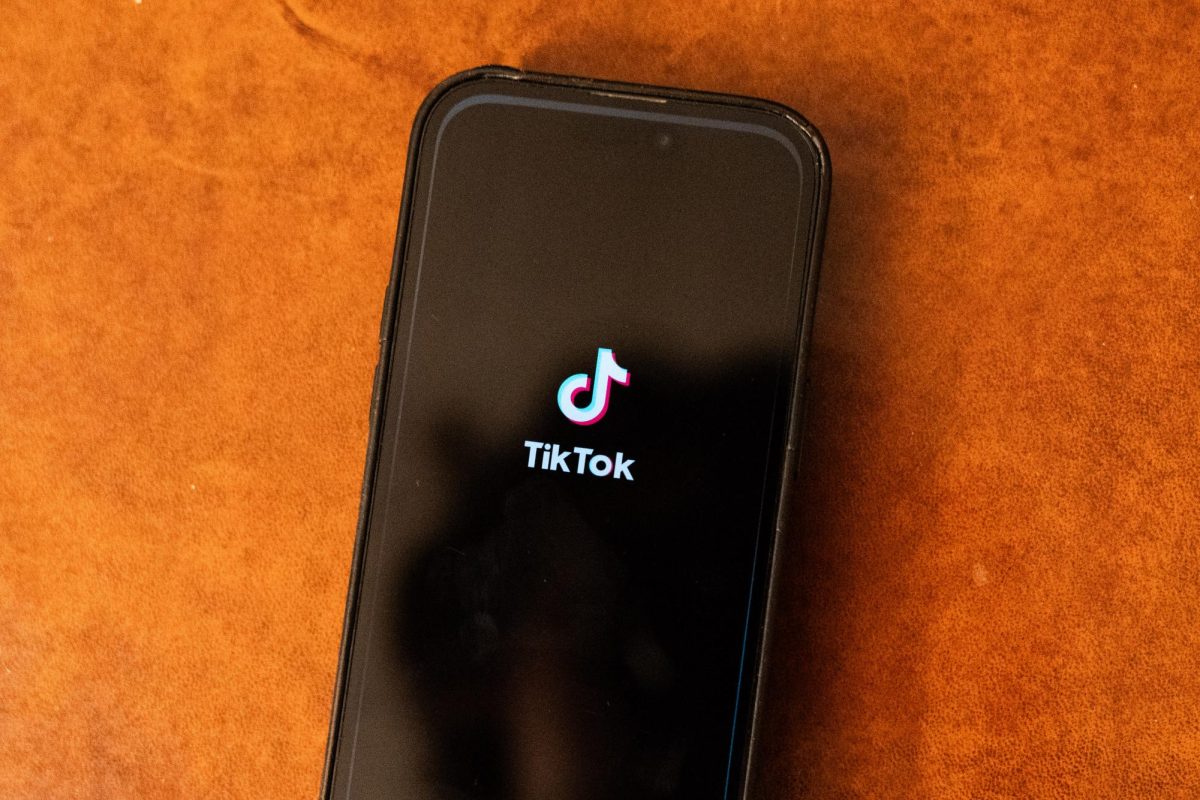How far would you go to defend someone if they brought back your favorite thing?
At the very least, Donald Trump seems to be counting on the fact that Gen Z’s TikTok dependency can score him political favor. On Jan. 18, all of TikTok’s 170 million users received a message upon opening the popular video app that they could no longer access its services. When TikTok started functioning again the next day, the new message credited its return to Trump’s efforts.
While Trump has recently been one of the advocates protecting TikTok against the proposed ban, he ironically was also one of the first voices to call for its banning in America. It’s startling — and frankly frightening — how he can go from TikTok’s enemy to its savior. Of course, Joe Biden and many Democrats were also in support of banning the app, but on the eve of Trump’s inauguration, this was a strategic way to manipulate public opinion. Conveniently, a message praising him as the champion of one of the most popular apps in America was broadcast just hours before he signed more executive orders on his first day in office than any other president.
What’s even more concerning to me is that not nearly enough people seemed frightened by this. Almost everyone I knew took to their Snapchat stories and Instagram Reels to announce their dismay at the shutdown, screenshotting and reposting the message that painted Trump as a savior for even more people to see. Even if this wasn’t all some master plan to manipulate his constituents, people seemed more distressed over the loss of their favorite viral videos than by the looming threat that Trump’s presidency poses to immigrants, queer people and women.
I saw an Instagram post from Alix Earle documenting the “heartbreaking” moment that TikTok went down as she was live and people couldn’t see her anymore. This was published with the tone of sincere, tragic mourning. Comments mostly commiserate with the influencer, grieving for her and calling the ban traumatizing. I want to reiterate for those sympathizing with influencers — they will be fine. The most popular ones are absurdly rich, and those who don’t make as much money have other jobs to support themselves. They can still post on Instagram and YouTube — and also TikTok, since it’s back anyway. For a general populace that holds so much ire for the people at the top, many seem to conveniently forget that your favorite influencer doing $2,000 makeup hauls is part of that upper class.
The parasocial relationships we’ve developed with social media result in extreme reactions to its loss. People were posting themselves sobbing and desperately asking what they’re supposed to look at now. For much of human history, we functioned just fine without constant doomscrolling. Isn’t it frightening how dependent we’ve become on apps that could pose threats to our data privacy and mental health?
Beyond the ways it can manipulate our political opinions and the information we receive, I believe our reliance on social media is making our lives worse. We’re wasting away, chasing the dopamine high of endlessly scrolling short-form content. It’s giving those in power — those with the money and motives to keep us down — the perfect way to control a willing population. I beg you all to realize that these apps can show you whatever they want to, disappearing and coming back at will, and now they know what a frenzy people can be kicked into if they lose their favorite toy.
Don’t let the people at the top have this power over you. Don’t let them distract you from the real, serious things happening in our world. Social media can be a powerful tool for mobilization and activism, but it can also be a delightful way to stick our heads — or have them forcibly stuck — in the sand. I take comfort in knowing that even if the internet exploded and I lost access to all my favorite social media apps, I wouldn’t find myself adrift in a sea of ennui.
Reactions to the TikTok ban suggest a concerning reliance on these platforms to keep us happy and entertained, a reliance that leaves us vulnerable to propaganda and cripples our self-esteem. If the worst thing that happened to you the week of Jan. 19 was that TikTok was down for a couple of hours, I suggest you reassess your priorities. And I don’t even mean this in an explicitly political way. No one should find themselves in tears because they can’t watch videos of strangers anymore. I understand how the potential ban could lead to strong feelings. These apps are designed to keep you addicted, but please remember that there is so much more value in building a real-world community, lifting each other up, connecting with nature and supporting your neighbor.
I’m not saying that everyone should delete every social media app at once, but I urge you to be more conscientious about how much time you spend online and how it affects not only your world views but your mental health. Trust me, your phone battery will thank you.
Brynn Murawski is starting to wish her parents could put time limits on her phone again. She can be contacted at bmm185@pitt.edu



